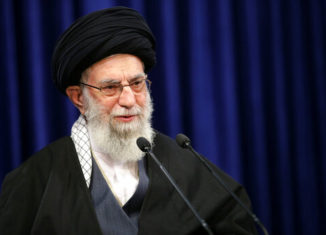Cash for Clunkers
The federal government website you access to learn about the cash for clunkers program presents a warning box , which states: “This application provides access to the D o T CARS system. When logged on to the CARS system, your computer is considered a federal computer system and it is property of the United States Government. A ny or all uses of this system and all files on this system may be intercepted, monitored, recorded, copied, audited, inspected, and disclosed to authorized CARS, DOT, law enforcement personnel, as well as authorized officials of other agencies, both domestic and foreign.”
Here’s what I think:
The f ederal government monitoring private emails and personal computers is nothing new. It began in the Bush administration which pushed the Patriot Act on Congress, with no debate in the House of Representatives, no opportunity for House members to read the bill before voting on it, and only minimal debate in the Senate. The late Sen. Paul Wellstone, who voted against the Patriot Act, is the only person in the entire Congress who has acknowledged reading it before he cast his vote.
The Patriot Act, which I have argued in my TV and radio work, in my books, and in countless speeches and op-eds and computer postings, is patently unconstitutional, permits federal agents to write their own search warrants (they are not called self-generated search warrants, they are called “National Security Letters”) and to serve them upon computer companies that operate computer servers. The recipient of the agent-written search warrant is prohibited by the same Patriot Act from telling its customer that the feds have come calling. The Constitution, which guarantees that all people shall be secure in their “persons, houses, papers, and effects,” requires that only judges may issue search warrants, and only after the government makes a showing under oath of probable cause of crime on the part of the person whose body the government wants to arrest, or whose home or papers or effects the government wants to search. This uniquely American right, THE RIGHT TO BE LEFT ALONE, has been upheld consistently by the Supreme Court for over 200 years, until the feds began chipping away at it in the 1970s and 1980s. The Patriot Act dealt a fatal blow to this right. The Patriot Act has been held unconstitutional at least a half dozen times by federal trial judges, but the government has backed down in every instance in which it has been challenged beyond the trial level , so no federal appellate court has ruled on it; and thus no appeal has made its way to the Supreme Court.
Thus, since the Patriot Act is still good law, except in the courtrooms of the six federal trial judges who have rejected parts of it, the government’s behavior in capturing private computers, in invading the contents of data stored on private computers, in tracking the use to which persons put their private computers, and in monitoring every keystroke that computer users make is lawful. It is lawful, but unconstitutional as directly violating the Fourth Amendment; it is immoral because unless the feds prosecute the computer user based on some evidence seized from the computer, the user will never know that the feds are monitoring. The government works for us. We should be able to monitor what it does whenever a congressman negotiates away our rights or plots to seize our property, whenever any prosecutor hides evidence that might help a defendant, whenever any judge rationalizes away the government’s obligation to uphold our freedoms.
The wildest applause I heard on Saturday in front of a crowd that the Columbus, OH police told me was between 8,000 and 10,000 in size came after I argued that when Bush and Obama have told us that their job is to keep us safe, they are wrong. Their job is to keep us free. Free to live in a society where the government obeys its own laws, free to pursue our happiness as we define it, free to be left alone.








